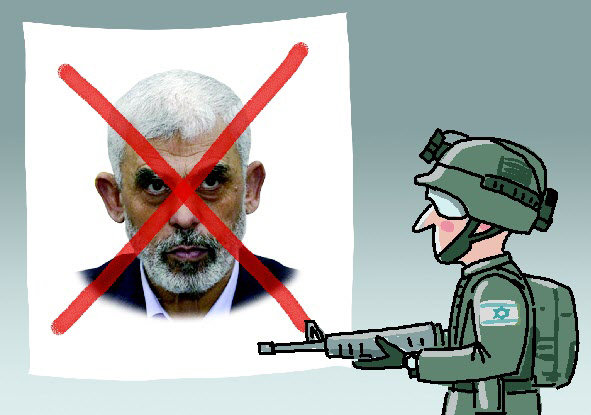The future of Shinwar’s death
The future of Shinwar’s death
Posted October. 22, 2024 08:13,
Updated October. 22, 2024 08:37

Shinwar is dead. A few days ago, I reflected on the end of Lee Hyeon-sang, the leader of the Jirisan guerrillas, and I had a sense that Shinwar’s fate would unfold in a similar way. And it did. Just as lingering mysteries surround Lee Hyeon-sang's final moments, Shinwar's downfall also mirrors a desperate escape. When the mountains were no longer safe from the national army’s punitive campaign, Lee broke through the encirclement but was killed in an accidental encounter with the pursuing forces. Similarly, Shinwar's demise seems to have been shaped by a similar struggle and retreat.
With Shinwar’s command structure collapsing and his security forces disintegrating, along with losing his safety zone, it appears he was left with only two bodyguards. In this vulnerable state, he attempted to evade the Israeli army and join soldiers operating on the second line to gain combat experience.
Will Sinwar's death stop the Gaza war? While the world may wish to believe this could be a turning point, the key players—Netanyahu and Hamas—seem unwilling to pursue such a course. Iran and surrounding protesters argue that Sinwar's death will only intensify their resistance, claiming that for every 100 deaths, 1,000 more will rise to join the cause.
Half of that statement is true. While Hamas, as a political force in Gaza, appears to have collapsed, resistance cannot be fully suppressed by force alone. The anger stemming from oppression regenerates continuously, and some of the survivors may turn to more extreme terrorist organizations.
However, terrorism also requires organization and preparation, and it seems that Hamas's ability to act has been significantly reduced for now. Israel may be quietly seeking an exit strategy behind the scenes. The response from Iran and Hezbollah remains a critical variable. Iran does not seem eager for further direct physical conflict with Israel and likely does not want Hamas or Hezbollah to be weakened further, as they both need time to recover. Hezbollah, meanwhile, appears more focused on its security at this moment.
The problem lies in Israel's cost-benefit calculations. Israel has shown that it has deep insights into the inner workings of both Hamas and Hezbollah. The question is whether Israel believes this moment represents the peak of its efforts. It seems likely that Israel may consider this point the peak, but there is always the risk that another angry terrorist attack could arise, catching Israel off guard.







